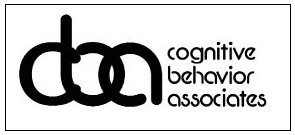Getting enough quality sleep can be extremely difficult for a number of reasons. Sleep is a critical aspect of your health and well-being. In fact, it plays a fundamental role in both your mental and physical health. Despite the importance of sleep, roughly one in three adults fail to get the recommended amount of sleep each night. Health experts recommend that adults get at least seven to nine hours of sleep each night. Below you will find the impact of insomnia on mental and physical health.
Impact of Insomnia on Mental and Physical Health
Not getting enough sleep can have a serious impact on your mental and physical health. Persistent sleep issues can result in insomnia. Insomnia is a sleep disorder that affects roughly one-third of Americans. The condition is characterized by persistent difficulty falling asleep, staying asleep, or achieving quality sleep. Below you will find the mental and physical health issues that are associated with insomnia.
Impact of Insomnia on Mental Health
There are several ways that insomnia can impact your mental health. From issues that can impact your day-to-day to long-term mental health issues, adequate sleep is necessary to ensure optimal mental health.
Decreased Cognitive Function:
First and foremost, insomnia has an impact on your cognitive function. This is often the first noticeable impact, as it can easily disrupt your daily life. Insomnia can lead to issues with paying attention, concentration, memory, and even decision-making. Over time this can lead to reduced productivity, poor performance at work or school, and even difficulties learning new things.
Mood Disorder Risk Increased:
Chronic and untreated insomnia is associated with a higher risk of developing mood disorders. Lack of sleep can lead to emotional instability and increased vulnerability to other mental health issues. Common mood disorders associated with sleep issues include depression and anxiety. These two often go hand in hand, so it can be really difficult to recover if your sleep issues are left untreated.
Increased Risk for Psychiatric Conditions:
Not only can a lack of sleep lead to mood disorders, but chronic insomnia is linked to an increased risk of developing psychiatric conditions, including bipolar disorder and schizophrenia. Additionally, chronic sleep issues can exacerbate existing symptoms or trigger the onset of these psychiatric conditions.
Impact of Insomnia on Physical Health
Insomnia not only impacts your mental health, but it can also have a serious impact on your physical health. The impact on your physical health is serious, as the issues can lead to chronic conditions that can dramatically impact your daily life.
Increased Weight Gain:
Chronic sleep issues can lead to weight gain and even impact your metabolism. This is because sleep deprivation affects the regulation of your hormones when it comes to controlling your appetite. This can lead to cravings, an increased appetite, and overeating unhealthy foods. Over time, this can lead to weight gain and an increased risk of obesity and type 2 diabetes.
Weakened Immune Function:
Sleep is necessary as it is a restorative function for your body. Without quality sleep for the recommended amount of time, it can weaken your immune system. This can make you more susceptible to illnesses and infections.
Increased Risk of Cardiovascular Health Issues:
Sleep issues can impact the function of your cardiovascular system. In fact, insomnia is closely associated with an increased risk of high blood pressure, heart disease, and stroke. These issues can have long-term consequences and negatively impact your daily life if not addressed early on.
Consider Cognitive Behavior Therapy for Insomnia (CBT-I)
Some of the symptoms of insomnia include difficulty falling asleep, waking up throughout the night, waking up too early, feeling tired when you wake up, or feeling daytime fatigue. If you experience the symptoms of insomnia for more than three nights a week, we encourage you to consider cognitive behavior therapy for insomnia. Research has proven that CBT-I methodology provides a successful treatment option for individuals who suffer from insomnia. Contact our center for cognitive behavioral therapy today to schedule an appointment!

